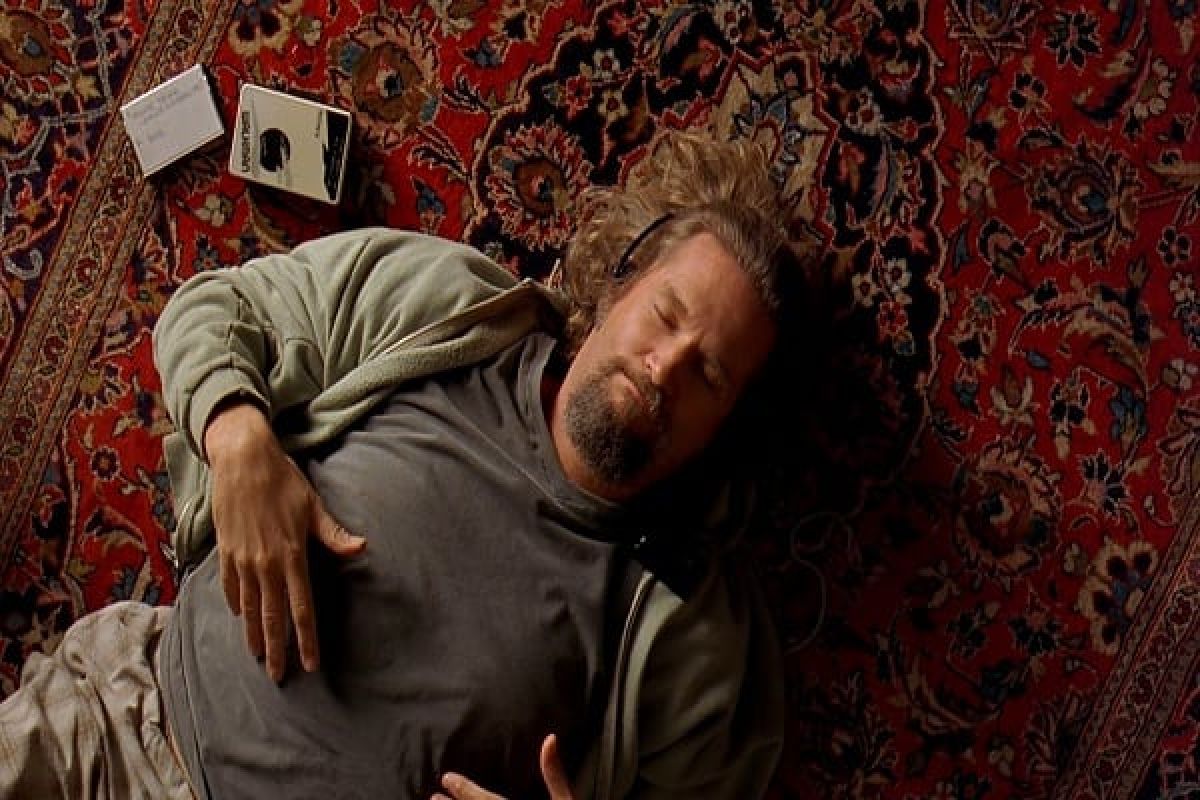The Big Lebowski at 20: the story of a rug
By James Gill

The Coen Brothers’ The Big Lebowski turns 20 this month, but the cult classic wasn’t always as popular as it is now, garnering mixed reviews in 1998. A film that begins with a mistaken identity quickly becomes a complex, interwoven web of storylines that the protagonist Jeffrey Lebowski, or The Dude as he prefers to be known, wants no part of yet finds impossible to escape. The reason for that is simple, his rug. First soiled then stolen, it not only tied the room together, but also the narrative.
And yet, what is going on in the front of the scene is often irrelevant. The kidnapping plot which we, the audience, feel should take centre stage is never fulfilled because of The Dude’s lack of ambition or motivation to pursue it. He would much rather go bowling with his friends Walter or Donnie and so the plot must come to him, but after each advancement of the story, each bit of new information that comes to light, The Dude continues his life as if nothing happened.
This is because he simply doesn’t care. He lives in a simple house, with no job, no goals and most importantly to him, no stress. However when his rug is stolen from him he is thrust into a complicated story that doesn’t really need him at all. Once he goes to find the real Jeffrey Lebowski and takes one of his rugs in return, that should be the end of The Dude’s involvement in the film. His journey is complete and the ending is satisfactory, but nothing is ever that easy.
The rug’s role in the film is a MacGuffin. A plot device in the form of object or goal that our protagonist pursues with little narrative explanation. You see them often in crime or spy films. James Bond is always after some object, that if in the wrong hands would spell disaster. More often than not the audience doesn’t care about the object itself, but for the action it catalyses. The Dude wouldn’t go find Jeffry Lebowski if his rug wasn’t stolen, just like Bond wouldn’t have fenced with Madonna in Die Another Day if it wasn’t for the Icarus Satellite. Well, he might have.
“It just seemed interesting to us to thrust that character into the most confusing situations possible. The person it would seem on the face of it least equipped to deal with it. That’s sort of the conceit of the movie.” Ethan Coen is saying here that it’s not the situations themselves which hold value to the audience but how The Dude reacts to them, how he copes with this influx of stress that tries to steer his life off course.
Joel Coen said in that same interview how the film was loosely based on the works of American writer Raymond Chandler. Episodic in nature, Chandler’s detective novels follow the protagonist as he interacts with lots of characters on his way to solving the case. The Big Lebowski’s main narrative is very similar to this, although it has a staccato rhythm from jumping between fast-paced investigation and the relaxed everyday life of The Dude.
Coming back to the rug, it’s importance to The Dude stems from what the rug itself represents, it’s stability and comfort in his life. Without that presence, he finds it difficult to relax, to be The Dude. While we see him go bowling with Walter and Donnie several times we never actually see him bowl. The closest he comes is in his imagination laying on the floor of his house listening to a tape of the Venice Beach League Bowling Playoffs from 1987, shortly before his second rug gets stolen.
“This is when we figured if things are becoming a little bit uncomplicated of unclear it doesn’t really matter. This is similar to Chandler in that the plot is secondary to the other things that are going on. If people are getting confused it’s not necessarily going to get in the way of them enjoying the movie.”
It is ironic that The Big Lebowski, a film whose protagonist works so actively to leave behind no legacy, has one of the biggest in cinema. From an annual festival to a religion, there is a surprisingly large following of dedicated fans, those who simply wish to abide by the same carefree lifestyle as The Dude.







